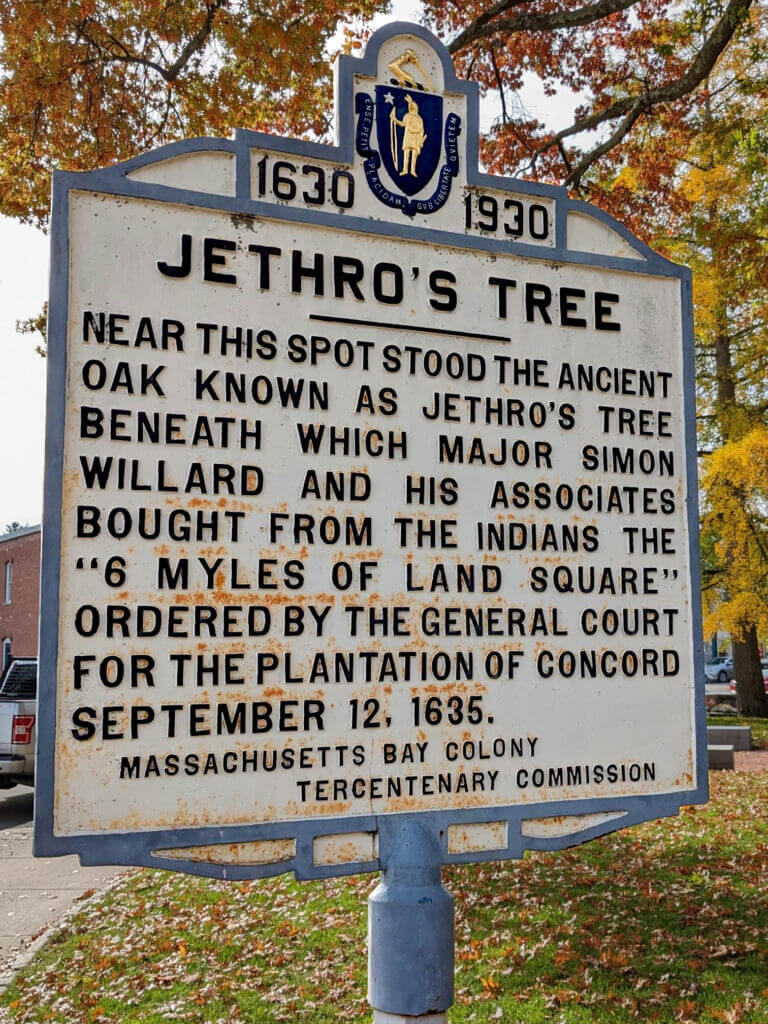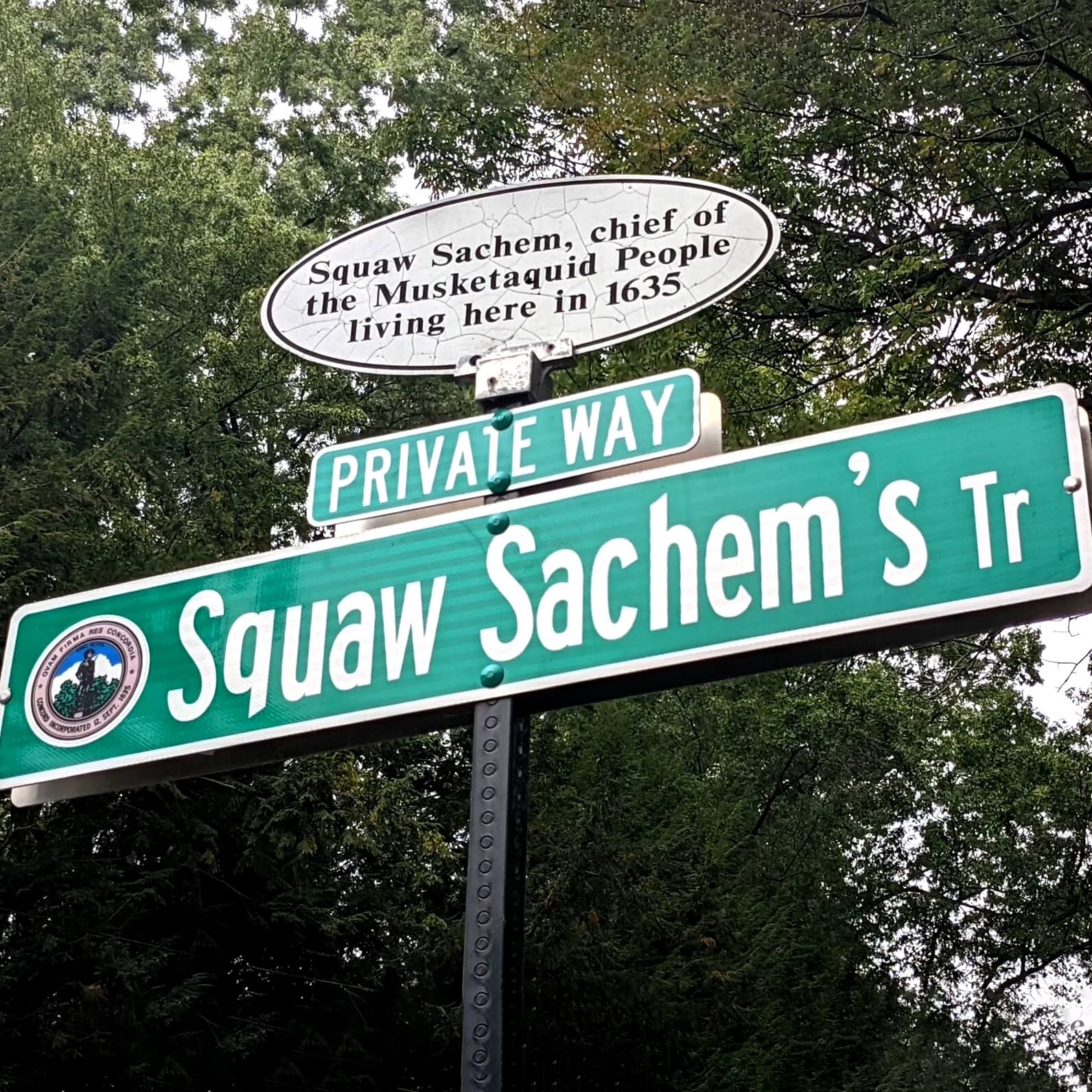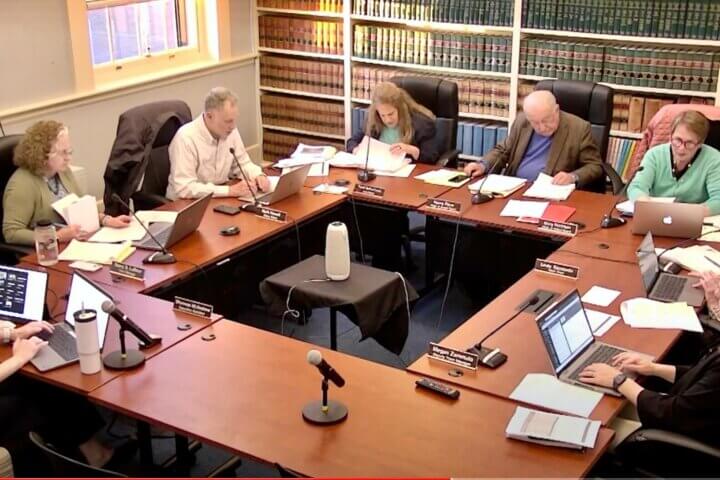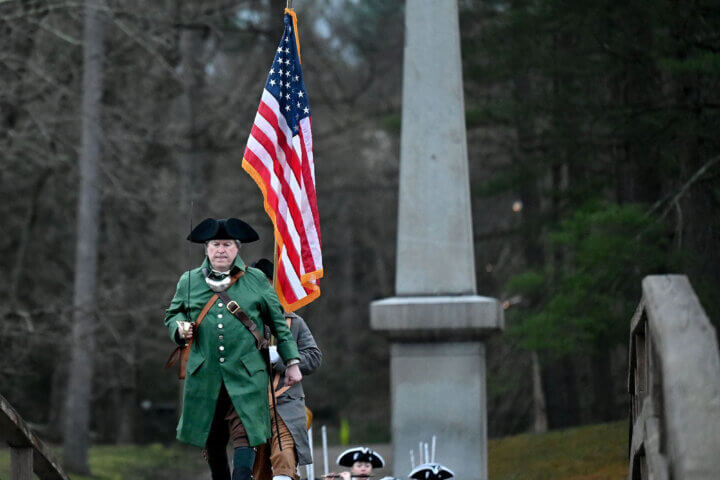Concord Historical Commission members and town residents are hoping to rename a street in Concord whose title includes a derogatory term referencing Indigenous Americans.
The road in question, Squaw Sachem Trail, is a short residential street named for an indigenous female leader who featured prominently in Concord’s history. The term “squaw” was considered benign when the street was originally named, and is now considered offensive, local historian Jim Sherblom explained.
“This was just [a term for] some woman who was married to an indigenous man: akin to calling someone a savage,” he said.
This conversation comes amid U.S. Department of Interior Secretary Deb Haaland’s recent efforts to remove the term from federal use, which resulted in a vote to replace the names of nearly 650 geographic features, according to a September press release.
Commission members and residents expressed their desire to take action in a recent CHC meeting.
Sherblom shared his research regarding the road’s namesake, whose recorded title was Saunkskwa of Mysticke. Saunkskwa’s given name is currently unknown, he said, because many early Colonial records do not include women’s names.
Her title reveals that she was the leader of the Mysticke clan of the Massachusetts tribe, of the Algonquin-speaking people, he said.
Saunkskwa negotiated with John Winthrop, governor of the Massachusetts Bay Colony, after the majority of her people had died of diseases.
“She… let him establish his settlement in Boston as a mutual defense pact because they had lost so many people that they were afraid they were going to be overtaken. This was a diplomat who was trying to protect her people in very dire circumstances,” Sherblom concluded.

Photo by Betsy Levinson
Commision members hope to uncover more information before taking further action. The commission’s chairperson, Melissa Saalfield, said the renaming process won’t be easy.
“The changing of the street is a big deal and we’re not there,” Saalfield said.
It would require input from local groups such as the Planning Board and Fire Department, and then be put to a town vote, Town Planner Elizabeth Hughes explained. All residents and owners on the road would have to agree to the change, as it would impact legal documents, bank accounts, mortgages and more, she said.
Saalfield and Sherblom also expressed concern regarding Jethro’s Tree: a historical marker in Concord’s town center erected in 1930 that states that land was “bought from the Indians.” Sherblom called the statement “completely ahistorical,” sharing that no records of land purchases before 1684 exist.
“History is constantly being researched and things we thought were true 50 years ago maybe are not so accurate,” Saalfield said, “it’s time to right the record.”





